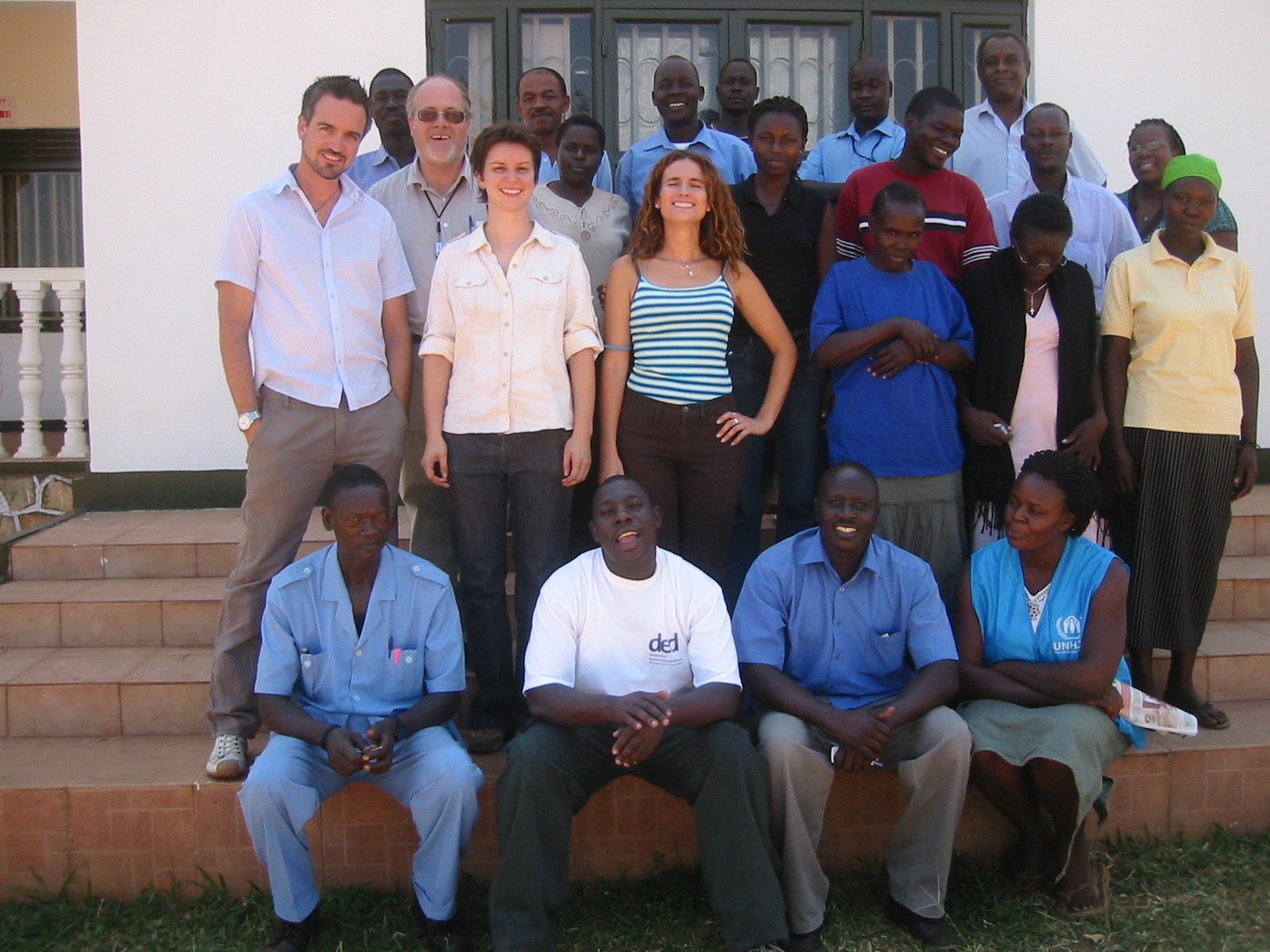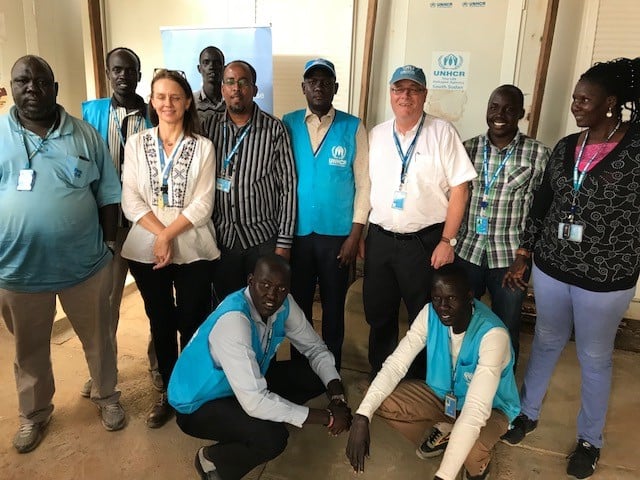HARRY LEEFE
HARRY LEEFE

Harry Leefe, 65, was born in the Forest of Dean in Gloucestershire and worked for UNHCR for 25 years. He joined in 1993 and had stints in Geneva, Bosnia, Kosovo, Uganda and Chad among other places, starting in logistics and later working as a deputy chief of mission and senior peace-building and partnerships officer.
One of his more hair-raising experiences was flying in an overloaded French-built military helicopter in Angola from an island refugee camp to the mainland. The young pilot took the craft below telegraph poles with the rotors, at one point, clanging a metal roof.
Harry also remembers an unwelcome confrontation with Liberians United for Reconciliation and Democracy (LURD) militia at a checkpoint in the jungles of Liberia. These were “manned by young teenagers, dead eyed, drugged, drunk, heavily armed, who were quite capable of killing you on the spot - and they did not like us.”
In Bosnia, Harry said he met “the most amazing people” and was proud to represent UNHCR at the highest level. He also takes prides in helping achieve organizational objectives in Uganda and Chad.
His fondest memory is also around repatriation, specifically organising the return of 250 Sierra Leone refugees on three Sierra Leone Navy gun boats to Freetown from Liberia in 1997. “The crew and staff were met on arrival by most of the population of Freetown, standing on the shore cheering and waving to their compatriots who had been in Liberia as refugees for many years. Everyone in tears.”
Like others, Harry says one of the key hurdles for UNHCR ahead will be to improve understanding of refugee problems in specific contexts and incorporate that into policies. He also believes UNHCR needs to communicate its role more widely, particularly as COVID-19 will likely make resources harder to come by in future.
UNHCR, he said, is “without doubt” the most UN interesting agency to work for as it covers so many areas of humanitarian work from emergencies, to repatriation, camp management, resettlement, logistics, supply, refugee law and other areas.
|
'I was too star-struck to ask for a selfie' |
'Many had no idea where they would sleep that night' |
'They know best what works in their communities' |
|
'We forded rivers and battled through muddy tracks' |
'Without doubt it's the most interesting UN work' |
'Dedicated people working in very difficult and often dangerous conditions' |












